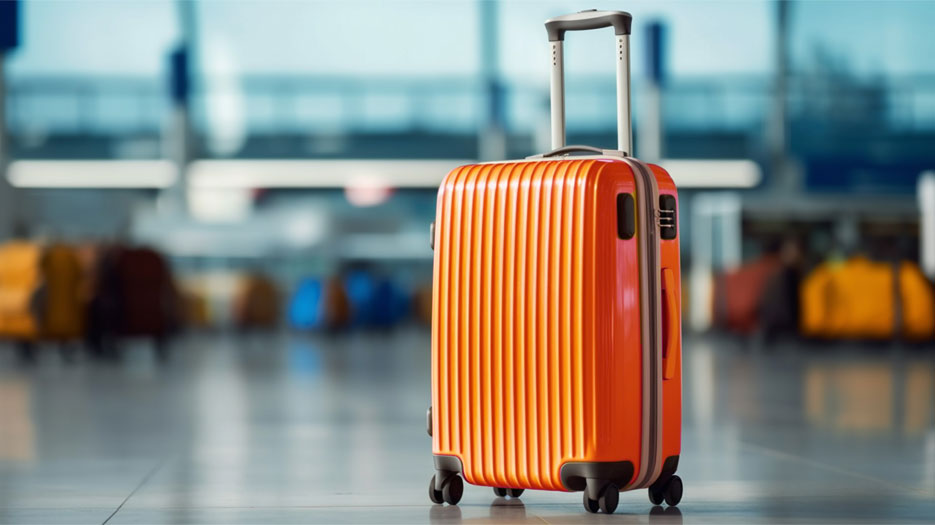6 Anticipated Trends Shaping the Travel Industry for 2024

2023 saw the travel industry rebound as travelers made up for time lost during the pandemic – we explored these in our 2023 Travel Trends Guide. But will these trends continue into 2024? With the bite of inflation still hitting travellers and a new host of destinations that are made popular by the likes of social media, there are more changes coming.
This guide explores six trends shaping the travel industry in 2024. We’ll also take a closer look at those who travel constantly – digital nomads – and the trends that they are pushing in the travel and hospitality industries.
1. House Swapping
The first thing you do after choosing a holiday destination is sort out your accommodation. But rather than booking hotel rooms for your stay, one of the upcoming industry trends for 2024 is to try house swapping.
This trend involves swapping homes with someone at your desired destination. You will stay in their home, and they will stay in yours. This is the basic concept that’s attracted the attention of thousands since the end of the COVID-19 pandemic.
Condé Nast Traveler reported that Kindred, a home-swapping platform, saw seven times the number of nightly stays in 2023 compared to 2022. With rising costs for Airbnb and traditional hotel stays, it predicted 2024 to continue this upward trend.
2. Off-Season Travel
From air travel costs to hotel rooms and attractions, tourists can save quite a bit of money by travelling in the off-season. Travellers who avoid the busier months of the year also enjoy milder temperatures and fewer crowds.
Search data has shown that increase in searches from customers looking to travel in May and June is more than the level from those planning to travel in July and August. There are several theories explaining this, from social media finance influencers encouraging cheaper travel to child-free lifestyles freeing travellers from the school term schedule.
With more balanced tourism levels throughout the off-season, this could have a very positive impact on the hospitality industry as a whole. Popular destinations for 2024 include:
• Ålborg, Denmark
• Mérida, Mexico
• Bangkok, Thailand
• Douro River, Portugal
• Amboseli National Park, Kenya
• Coastal Campania, Italy
• Nilpena Ediacara, Australia
3. Climate Consciousness
One key tourism trend that’s almost impossible to ignore is sustainable travel. Everything from booking hotels to choosing a method of transport can be viewed through the lens of climate consciousness. Travellers are asking: how can I minimise my impact as I travel?
As the BBC reported, 90% of consumers seek sustainable options while travelling. For those that spend considerable time travelling and working, choosing destinations that welcome (and enable) sustainable living with a high quality of life index is crucial.
We are glad to see that both Singapore and Australia made the BBC’s list of sustainable travel destinations in 2024 – you can find Compass Offices’ flexible office spaces in both locations.
4. Gastronomy Getaways
Travellers would queue hours for a new gastronomical experience. You can anticipate waiting a minimum of 30 minutes to get your hands on Cédric Grolet’s viral croissant-beignet in Paris, as a customer shared the experience online, but it is surely worth it! Pasta-making in Italy and Thailand’s street food scene are earmarked for renewed attention in 2024 too.
The main tourist attraction at many destinations worldwide is shifting towards the culinary realm. Thanks in part to the power of social media, travellers are exploring street food, restaurants, exotic fruits, and all manner of tasty treats around the world on their travels.
Hotels that can provide food as well as accommodate guests will benefit greatly from this trend, along with other travel industry jobs that overlap with the food industry.
5. Spontaneity
The tourist trend of carefully micromanaging every aspect of their travel plans is over. Rather than hotel booking months in advance, travellers want a sense of spontaneity – and the hospitality industry is advised to adapt to meet them.
American Express surveyed millennials, Gen Z, Gen X, and baby boomers to assess their attitude to spontaneity in 2024. They found that across the board, millennials and Gen Z are far more spontaneous than older generations. The data also shows that dining, shopping, and nightlife are three of the key areas where spontaneity is valued, while hotels and accommodation should be more predictable and safer.
6. Solo Travel
Our last key trend for the travel industry in 2024 is solo travel. Millennials, in particular, are leaning towards solo tourism, self-care, and ‘silent travel’ where the focus is on wellness and nature. These travellers are yearning for a quiet break, time to tick things off their bucket list, and a chance to focus on themselves.
Quality is key here! These travellers are more likely to book hotel rooms that are geared towards solo travel. For some women, having women-only spaces and tours or group guides for solo travellers is ideal too. A good portion of travellers are also willing to spend a little more – AMEX found that 66% of millennials and Gen Z survey respondents will pay extra to get an upgrade on their trip, compared to just 43% of baby boomers.
For the hospitality industry, this indicates a change from budget holidays and group discounts to safe solo traveller spaces and luxury options.
The Digital Nomad Lifestyle
Since 2019, the number of US workers who identify as digital nomads has increased 131%, according to an American direct sourcing platform. We’re seeing this cultural shift around the world. People don’t just want to travel for their holidays – they want to explore the world as part of their daily 9-to-5.
Popular destinations for digital nomads suggested by an offshore consulting firm include:
• Costa Rica
• Georgia
• Thailand
• Malaysia
• Portugal
• Singapore
• UAE
Settling down, purchasing a house, and living a traditional life is becoming increasingly out of reach. Instead of focusing on attaining these milestones, younger generations are putting their energy into building a career and seeing the world in 2024.
From finding affordable air travel to booking hotels, being a digital nomad requires a lot of organisation before you can reap the benefits of the lifestyle. Even though a digital nomad has no roots, they still need a solid base from which they can work. That’s where flexible workplaces step in.
A flexible workplace is a professional and dedicated office space that you can utilise on your digital nomad lifestyle. Based in central city locations, they give travellers a space to earn money and fund their lifestyle without strings attached.
More flexible office spaces and accommodation geared towards digital nomads is one more trend that we expect to see in 2024.
Conclusion
This year, we are seeing a rise in solo travel, a focus on spontaneity, and more interest in cuisines than traditional tourist attractions. But we are also seeing a switch in spending habits. Travellers may be willing to pay a little more for a luxurious experience, but they are also looking at house swapping and off-season travel to reduce costs.
We can also see these trends in the digital nomad lifestyle in 2024. More and more people are travelling and working around the world, and they are looking for flexible workspaces and amazing destinations to explore along the way.





